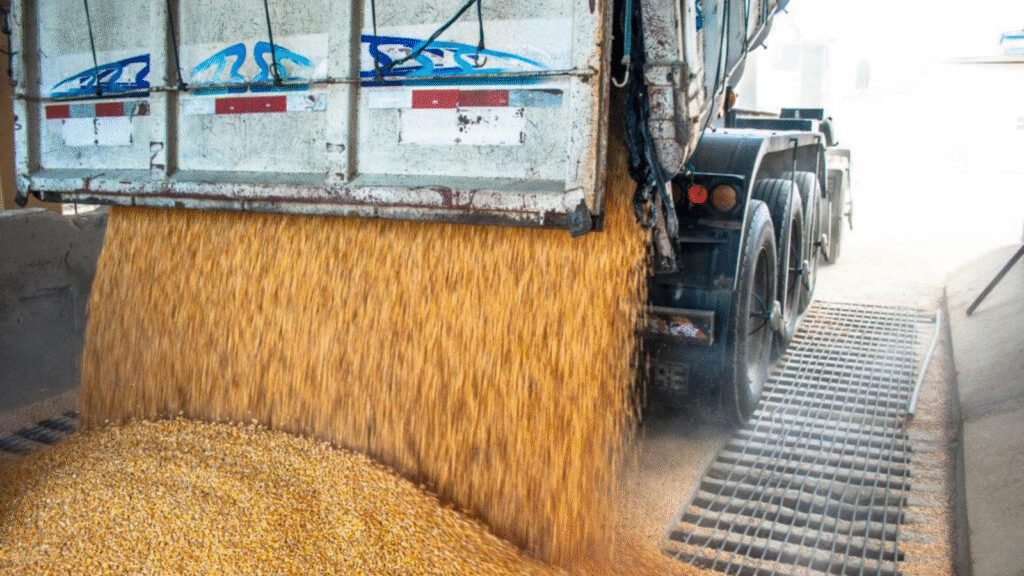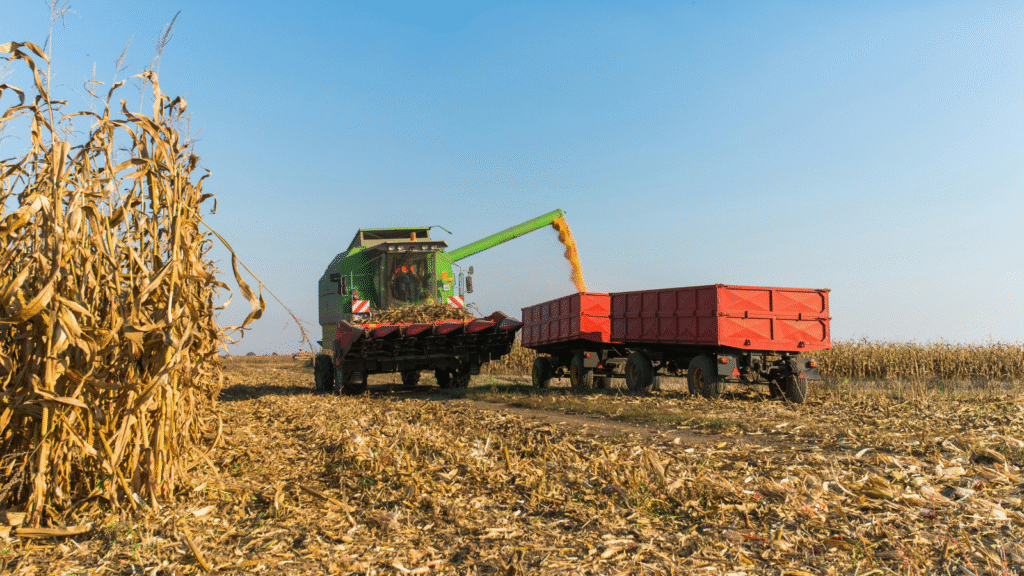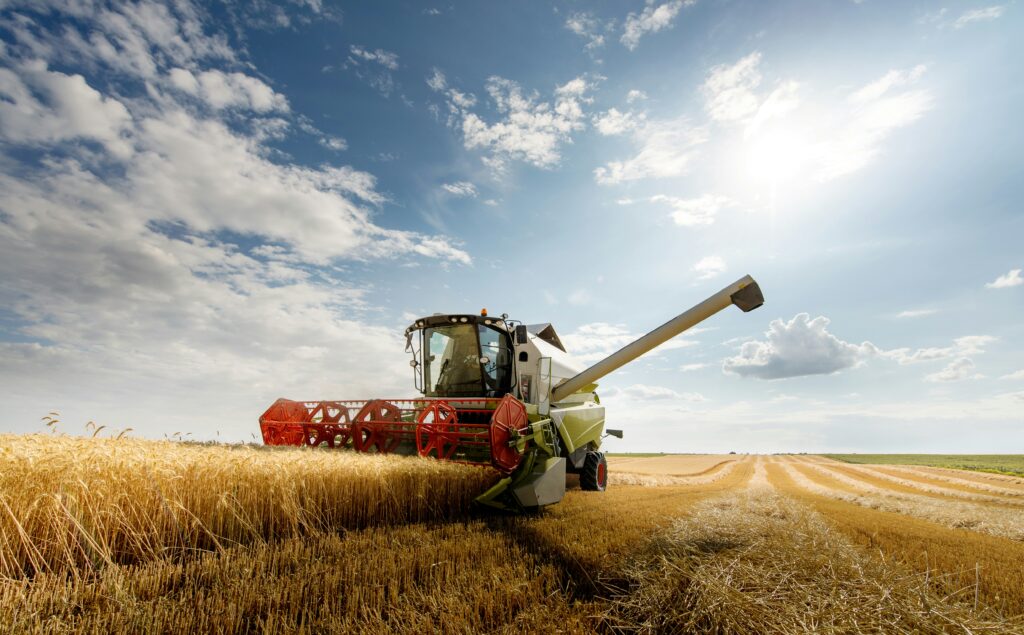If you are a farmer, have you ever given gifts of grain or other commodity crops to your congregation or other Christian ministries from your fields or bins?
This practice has roots in the Old Testament. It is an ancient practice of God’s people, and the source of “first fruits giving” in our stewardship language. In this article, I am talking about something in harmony with biblical descriptions like this one, as well as something different, which you will see.
9 The Lord spoke to Moses, 10 “Speak to the Israelites and say to them: When you enter the land that I am giving you and you reap its harvest, you shall bring the sheaf of the first fruits of your harvest to the priest. -Leviticus 23
There are ways you can give commodity crops in ways that will serve the Good News of Jesus and also are helpful because of how the tax code treats these kinds of gifts.
Even though these are tender times for people in this tough agriculture economy, I want to lift up this idea that could help spur generosity. For non-farmers reading this, you may not know that many who farm are facing serious instability related to prices this year. And even as farmers celebrate the gathering of a great crop, this does not allay concerns about paying their bills and loans. Costs for inputs that go into growing the crop continue to rise faster than prices support. A great crop does not always translate into a great price for the crops.

Whether you are familiar with this practice or not, giving grain or other commodity crops is a wise, faithful way to give first-fruit financial support to your congregation. It is a way to invest in shared ministry and mission, planting seeds of faith, hope, and love. It is a way of following the great sower of the seeds, Jesus.
Although this practice may not help all farmers, giving gifts of grain to their congregation (or another ministry that serves the mission of Jesus) might be helpful to farmers this year and in future years.
Giving these kinds of gifts requires attention to details for farmers, grain elevator operators, and congregational leaders. It takes all three groups to make this work well.
I am not a financial expert, so I encourage farmers to touch base with their accountants or other people who help with gifts, including church institution leaders or community foundation leaders.
Why?
But before we talk about the technical steps that need to be followed to give, let’s take a moment to remember why we practice generosity.
For generations God’s people have practiced giving grain back to God in gratitude for their harvest. We give as a way of remembering that all we have is a gift from God.
One of my teachers, former bishop Charles Anderson, used to talk about how our gifts are “little packets of love.” That is what he called dollar bills and larger bills, “little packets of love that help us share the Good News” with all generations and proclaim the Good News to people near and far in our time.
I invite you to imagine a bushel basket full of some kind of grain–wheat, corn, soybeans, millet, rice, sunflowers, or edible beans–to be a gift as well.

Farmers can give bushels of produce as a way of giving back out of gratitude to our God who continues to create and bless us every season as we plant, watch the growth, and harvest the mysterious providing work of our God. First fruits are not leftovers, they are from the first and best part of the harvest of God’s amazing creation. God sows love into our world and lives abundantly. We get to share that love.
This practice is helpful for its significant tax benefits for cash-basis farmers:
- Tax Savings: By contributing unsold grain directly, the farmer does not have to report the sale of the grain as income. This reduces their federal and state income tax, as well as self-employment tax.
- Deductions: The farmer can still include the cost of growing the grain in their deductible expenses, which further maximizes the tax benefit. This is a common advantage for farmers who no longer itemize deductions due to the increased standard deduction.
- Supporting the Work of Jesus: The best part is supporting the work of God through your congregation or institution to love people and proclaim the Good News we know in Jesus.
How?
To ensure the transaction is executed properly, numerous sources emphasize these key steps:
- Relinquish Control: The farmer must give up “control and dominion” over the grain by instructing the elevator to transfer the grain to the church’s name before any sale. This also implies the importance of communication with the church and your elevator about what you are doing and what they need to do.
- Documentation: A warehouse receipt showing the church as the owner, or a notarized letter of transfer for farm-stored crops, must be executed.
- Communicating your intent to the church and the elevator in writing is important.
- Church Responsibility: The church then assumes control, including any costs of storage, marketing, and transportation, and orders the sale of the grain, with the proceeds check made payable to the church.
Farmers, elevator operators, and congregational leaders all need to follow these steps carefully.
Two United Methodist Church foundations—the Missouri United Methodist Foundation and the Kansas Methodist Foundation—provide handy downloadable resources. Other denominations, including the ELCA, The Episcopal Church, Presbyterian Church (USA), and other church bodies, provide further resources. Community foundations are well equipped to help you give gifts in this way, as well as through estate gifts. You can learn more by searching “Giving grain or commodity crops to your local congregation,” specifying your denomination (if any) in the search query.

Re-Membering
For farmers, giving grain to fuel God’s work also invites them to remember that they are also giving of themselves in every calling of their daily life as they walk through their days as well. From loving your neighbor to caring for the land, farmers are giving back to God.
Our God is the Creator. We are stewards. Giving in this way is an opportunity to steward God’s generosity by returning a part in a practice of generosity.
Thanks for all the ways you serve, care for creation, and give in love of God, your community of faith, and your neighbors.

